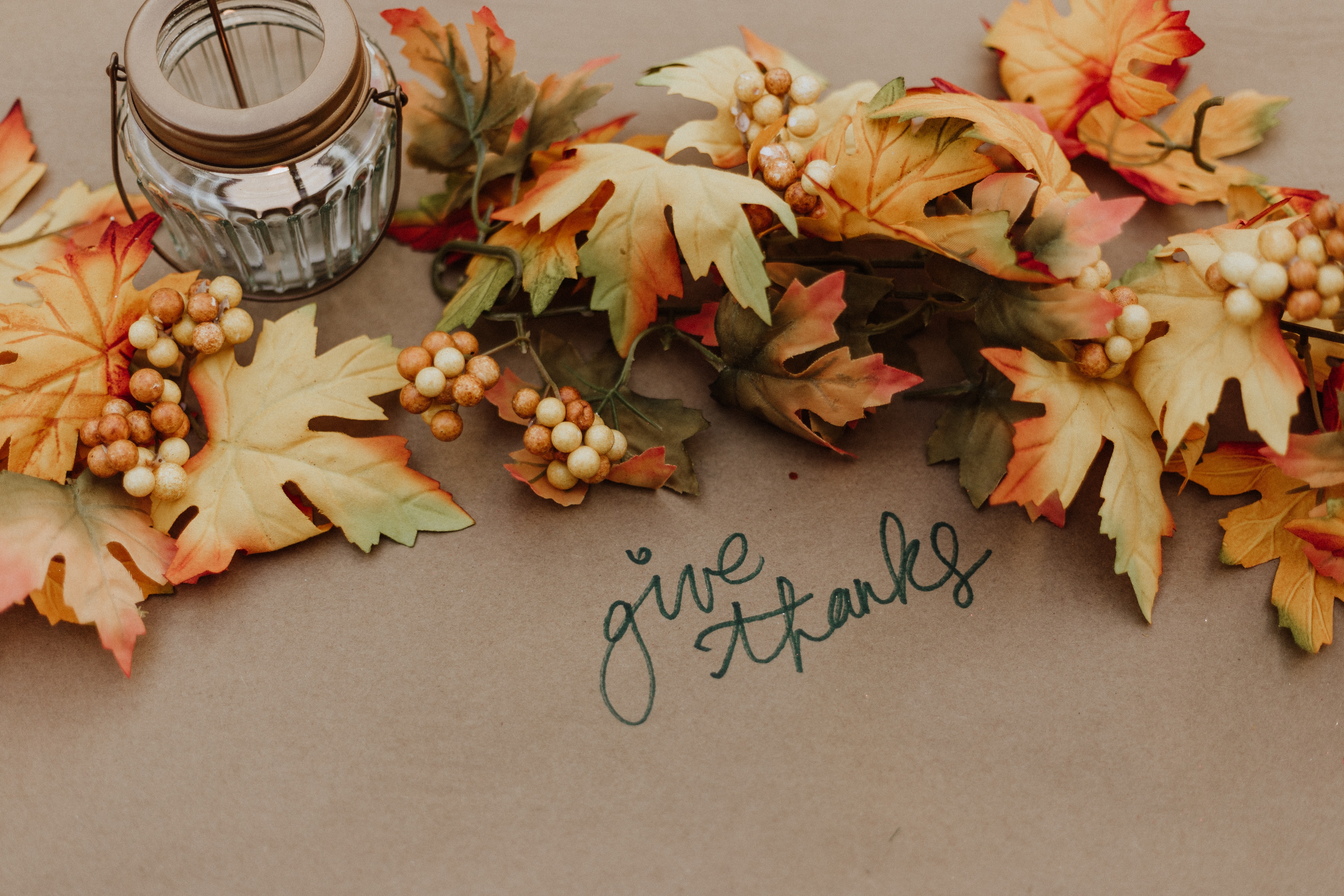Thanksgiving is coming up this week, and many would agree that it’s quite a unique American holiday. It doesn’t commemorate a battle won, honor an individual, or recognize a religious observance. Rather, it’s a day to remember our blessings as individuals, as well as the collective blessing of living in this country.
Our nation’s formative days underscore this thought. In 1621, the Pilgrims of Plymouth Colony in Massachusetts set aside a day to celebrate their first successful harvest. They also rejoiced in the promise of living outside of Europe’s oppression, and under the liberties that God intended for all humankind.
Traditions and rituals that we engage in every year have different meanings for different people, and each family and group has its own way of celebrating. There’s no right or wrong; the important thing is that we have some type of ritual in our lives. Celebrating Thanksgiving by honoring its traditions can truly contribute to overall psychological and emotional well-being. In fact, during unprecedented times like a pandemic, traditions can be the grounding force to help us get through times of uncertainty.
My father, who was a Holocaust survivor, was not only a fan of traditions, but his favorite all-time song was “Tradition,” the opening song for the 1960s Broadway musical Fiddler on the Roof. The song sets the mood for the show, which depicts the vital role of each of the individuals in the village, as well as their roles as significant parts of the world around them.
This is a timeless way of being, as we’re all interconnected. While on many levels, our lives are less complicated during this pandemic, on some levels it’s more complicated, as we’ve had to make adjustments in both our personal and professional lives. The unsettling nature of this global challenge coupled with political disarray in many countries makes it even more important for us to not only come together as a collective, but to adhere to as many comforting traditions as possible. This can be as simple as sipping our morning coffee, taking the dog for a walk, daily meditation or yoga, or sharing an intimate Thanksgiving meal with those in our households.
While we try to make sense of our current situation, we can also maintain a mindfulness practice to help us stay in the moment, rather than looking to the past or the future. As the Dalai Lama says, “There are only two days in the year that nothing can be done. One is called yesterday and the other is called tomorrow, so today is the right day to love, believe, do, and mostly live.” Honoring some of our favorite traditions is one way for us to take back some degree of control—at least in our small parts of the world. Doing so can help shelter us from the chaos of the outside world while giving us a sense of inner harmony and serenity.
My father died during this time of year back in the ’90s. Thanksgiving reminds me of him and how important traditions were to him and his state of mind and sense of security. After spending five grueling years from the ages of 15 to 20 in the Dachau concentration camp, he believed that unifying traditions like holidays were essential to his survival, particularly after emigrating to a new country and starting a new life for himself.
Over the years, the idea of Thanksgiving hasn’t really changed, but what might have changed is what we’re thankful for. At this time, it’s wise to be grateful for life’s small pleasures, such as a phone call or email from a loved one or close friend. It’s a wonderful time to ponder our blessings, rather than what we’re missing out on. It’s okay to be sad about things that make us melancholy, but we can navigate our way through the holidays just like we’ve figured out everything else this year. Whether that means cooking a smaller-than-usual turkey, writing Thanksgiving letters, or staying in our pajamas and ordering takeout, it’s important to remember that this year, the way we’re all doing things is certainly different, but it’s a temporary scenario. And we will get through it.
Sharing in holiday traditions keeps us all connected and united, so while celebrating on a small scale in our homes, let’s remember to spread the gratitude to our loved ones—and also strangers—living near and far. Here are some suggestions:
- Light candles for loved ones who’ve passed away.
- Write letters of thanks, or make phone calls, to close friends and relatives.
- Send out Thanksgiving cards.
- Give food baskets to those in need.
- Volunteer and/or donate to a food bank.
Traditions should be honored, embraced, and cherished as a way to restore your spirit. Happy Thanksgiving to one and all!
Originally Published in Psychology Today, November 22, 2020.


